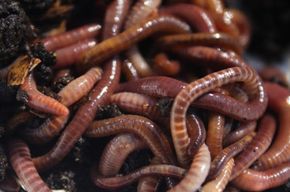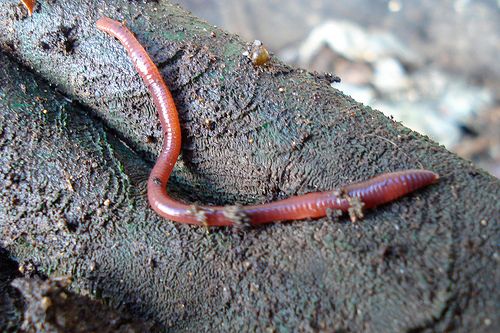Red Wiggler Worms Demystified: Opening the Secrets of Vermiculture for Greener Living and Nutrient-Rich Dirt
In the world of sustainable methods for enhancing dirt quality and advertising eco-conscious living, red wiggler worms play a critical yet often neglected duty. Red Wiggler Worms. Understanding the details of caring for these worms, optimizing their setting, and using their spreadings can lead to a greener way of life and much healthier soil for plants to thrive.
The Duty of Red Wiggler Worms
Red Wiggler worms play an essential role in composting systems by successfully damaging down organic matter right into nutrient-rich spreadings. These ravenous eaters take in a selection of organic materials, such as kitchen scraps, backyard waste, and paper items. As they feed, the worms' gastrointestinal procedures break down the natural issue right into a fine, dark, and nutrient-dense product recognized as worm spreadings or vermicompost.
The castings generated by Red Wiggler worms are very beneficial for soil health and plant development. They are rich in important nutrients like phosphorus, nitrogen, and potassium, which are crucial for sustaining healthy and balanced plant growth. In addition, worm castings include valuable germs and enzymes that assist improve dirt structure, rise water retention, and boost nutrient uptake by plants.
Benefits of Vermicomposting

Furthermore, vermicompost, the nutrient-rich final result of vermicomposting, functions as a superb natural plant food and dirt conditioner. It enhances soil structure, improves dirt oygenation, and raises soil wetness retention. These homes add to healthier plants with more powerful root systems and much better resistance to bugs and illness. Vermicompost likewise enriches the soil with vital nutrients like nitrogen, phosphorus, and potassium, advertising plant development and overall soil fertility.
Additionally, vermicomposting supports sustainable gardening methods by providing a chemical-free and all-natural alternative to synthetic fertilizers. Red Wiggler Worms. This ecologically friendly technique not only enriches the dirt however also helps in reducing dependence on hazardous chemicals, advertising a greener and extra lasting means of horticulture
Establishing Up a Worm Bin
When establishing a worm bin for vermicomposting, proper configuration is vital to make sure the success of the composting procedure. The initial step in setting up a worm container is picking an ideal container. This can be a plastic bin or wooden box that offers enough room for the worms to walk around and has appropriate water drainage openings to prevent waterlogging. Next, a bed linens material such as shredded paper, cardboard, or coconut coir ought to be contributed to the container. This bedding supplies a comfy atmosphere for the worms and assists maintain wetness degrees.
After adding the bed linens, you can try here present the red wiggler worms to the container. The worms ought to then be given with food scraps such as fruit and veggie peels, coffee premises, and eggshells.
Routinely monitor the wetness degrees and temperature level in the worm container to ensure optimum problems for the worms. With proper configuration and upkeep, the worm bin will effectively transform natural waste into nutrient-rich compost for your plants and yard.
Gathering Worm Castings
To successfully collect nutrient-rich worm castings from your vermicomposting system, a methodical harvesting approach is important. When it comes time to gather the worm castings, there are a few crucial steps to follow to guarantee a successful procedure.

Troubleshooting Common Issues
Identifying and dealing with usual difficulties that may occur throughout the vermicomposting procedure is crucial for preserving a productive and healthy worm bin. One typical concern that vermicomposters encounter is overfeeding. Including excess food scraps can bring about a buildup of wetness and level of acidity in the worm container, potentially harming the worms. To stop this, feed the worms in moderation, guaranteeing that the food scraps are sufficiently broken down before adding much more. Another problem is undesirable odors originating from the worm bin. Foul scents show anaerobic problems, generally triggered by overwatering or poor air flow. To treat this, readjust the dampness degrees by including completely dry bedding products like shredded newspaper or cardboard and boost oygenation by transforming the bedding regularly.
In addition, if the worm population is declining or the worms show up undesirable, it might be because of ecological stressors such as severe temperature levels or pH levels. Keeping track of these elements and making required changes is vital for the health of the worms. By troubleshooting these common problems quickly, vermicomposters can make certain a smooth and successful vermicomposting process while preserving a prospering worm populace.

Conclusion
In verdict, red wiggler worms play an essential function in vermiculture by damaging down organic matter right into nutrient-rich dirt. Establishing up a worm bin is essential for successful vermiculture, and gathering worm castings gives valuable compost for gardening.
As they feed, the worms' digestion procedures damage down the natural issue into a penalty, dark, anchor and nutrient-dense product recognized as worm castings or vermicompost.
The castings produced by Red Wiggler find this worms are highly beneficial for soil wellness and plant development. Including excess food scraps can lead to a build-up of moisture and acidity in the worm container, possibly hurting the worms.In addition, if the worm populace is declining or the worms show up harmful, it might be due to ecological stress factors such as extreme temperatures or pH levels. Establishing up a worm container is essential for successful vermiculture, and collecting worm spreadings gives beneficial garden compost for horticulture.